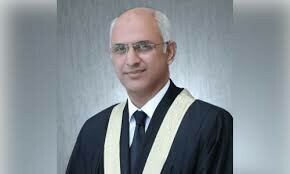ISLAMABAD, Nov 23: Protection of human rights is the responsibility of the society in general and the state in particular, but both have failed to undertake this charge since the birth of the country.
This was the consensus which emerged during a seminar titled "Protection of Human Rights, Whose Responsibility", arranged by the British Alumni Association of Pakistan in collaboration with the British Council here on Tuesday.
Minister of State for Interior Dr Shahzad Waseem presided over the event. Speakers discussed the issue of human rights with respect to the media, gender and the police. UNHCR Representative Jehangir Durrani deliberated on the definition and concepts of human rights as accepted internationally.
Mr Durrani, in a critical tone, informed the participants how the state had failed to ensure rights of the people. Pakistan is a signatory to only a few conventions on human rights which are merely documents and subjects and are meaningless for the common man, he said, adding that violation of rights led to sufferings, injustice and corruption which the government had failed to address.
Suggesting a way forward, Mr Durrani said in order to protect the rights of citizens, firm political commitment, necessary legislation and awareness were needed. Dr Z. U. Khan, one of the speakers, sketched a gloomy picture of human rights in Pakistan when he criticized the state for not recognizing the fundamental rights of the people by using unconstitutional practices.
He said police reports were prepared without investigations, while the prosecution was neither independent nor professional. "There are scores of laws that enforce human rights, yet protection to people is denied," he added.
Highlighting the role of police in Pakistan, Dr Khan said: "The police order 1861 earlier adopted by Pakistan was actually Irish Constabulary Law, which only applied in Ireland for the hostile Irish communities.
"It was introduced in the subcontinent to suppress the hostile people of this region." He said the police was "anti-people and an instrument of fear", adding that "they were non-professional, incompetent and corrupt."
The speaker said the police could not maintain law and order because people had lost confidence in them. "Insatiable appetite of politicians for control of police made matters worse," he added.
Dr Khan said the Police Ordinance-2002 was more service oriented and would make the police an effective mechanism through public safety commission at all levels of government.
"Police will deliver when properly trained, remunerated and respected." Speaking on the occasion, Matiullah Jan, a mediaperson, criticized the state for, what he said, heavily contributing to violation of fundamental human rights.
He said denial of access to information and restricting freedom of speech were violation of one of the most important basic rights of the people. "State has denied people the freedom of expression and access to information which is essential for empowerment and creating awareness among the people of their fundamental rights.
"Maximum freedom of expression and easy access to information can only ensure protection of human rights," he said. He said the state media had been 'government media'. "All that is controversial is hidden and people are kept in the dark," he added.
Mr Jan also criticized the parliamentarians for failing to fight for the people and voice their opinions as representatives of the people. He said even the media had failed to perform its duties responsibly, adding that the media had confused priorities.
Barrister Masroor deliberated on the legal aspects of human rights as mentioned in the Constitution of Pakistan. Speaking as chief guest, Minister of State for Interior Dr Shahzad Waseem said the state was making best endeavours to ensure human rights, but this could not be achieved overnight.
People should also work for ensuring human rights, he added. Informing the audience about the Police Ordinance-2002, he said there had been strong resistance from politicians in implementation of the ordinance. The idea was to separate both politicians and the police, he added.
"An effective delivery mechanism was needed to ensure fundamental human rights, however, education of masses about their rights was the best solution," the minister said. -Jamal Shahid













































Dear visitor, the comments section is undergoing an overhaul and will return soon.